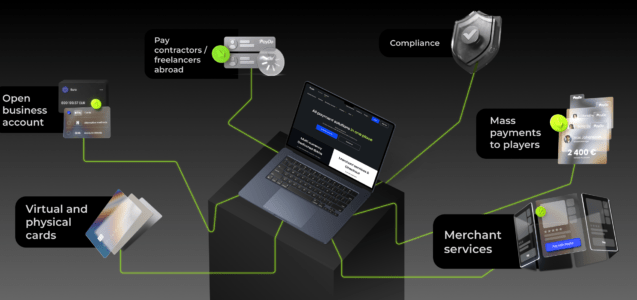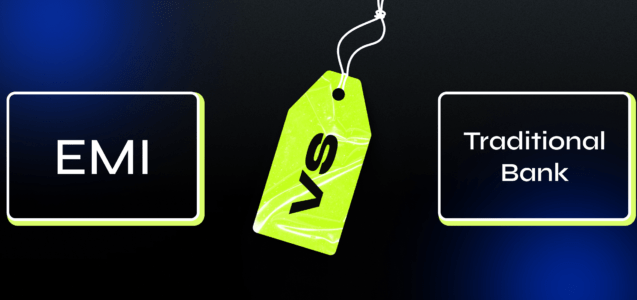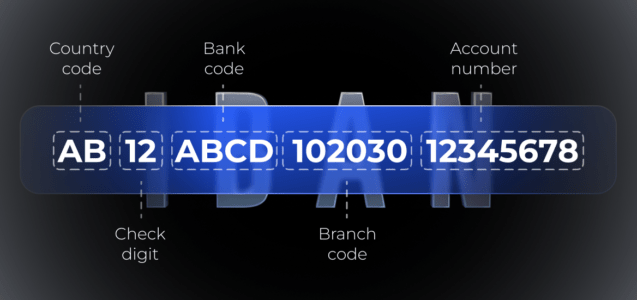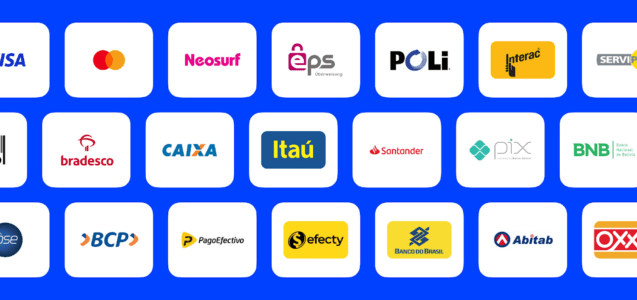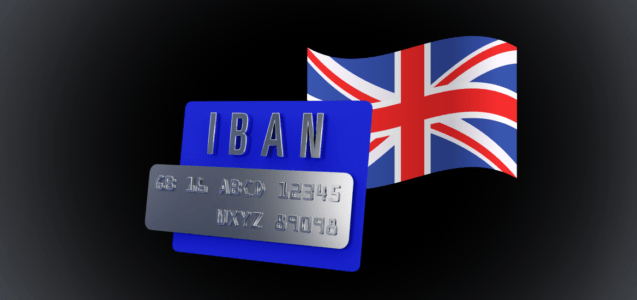PayDo is a top-tier (I) Electronic Money Institution (EMI) and (II) Money Services Business (MSB) fully authorized by the (III) Financial Conduct Authority (FCA) in the United Kingdom and the (IV) Financial Transactions and Report Analysis Centre (FINTRAC) in Canada. PayDo licensed in UK, Canada, and Malta.
Understanding the four key elements above gives an answer to the question we pose—where is PayDo licensed? Let’s explore these aspects one by one and have a clear and straightforward answer to our inquiry.
I. What is an EMI?
EMI is a financial entity authorized to issue electronic money, a digital equivalent of cash stored on electronic devices or remotely at a server. EMIs like PayDo are pivotal in modern financial services, offering an alternative to traditional banking by facilitating digital transactions and payments.
Operating globally across 150 countries and more than 25 industries, Paydo licensed to offer personalised solutions to both businesses and individuals. The platform features multicurrency IBANs, merchant solutions, and mass payment options. PayDo follows the mission of providing premium and convenient payment services. Its clients get all of that within one platform and one contract, making PayDo a preferred solution in the market for both local and international payments.
Differences Between EMIs and Traditional Banks
One of the primary differences between EMIs and traditional banks is how they handle customer funds. For instance, PayDo, as an EMI, must segregate customer funds from its business funds.
Such a process is known as safeguarding. This means that Paydo licensed not use the money you deposit into a PayDo account. PayDo does not use it for any other corporate expenses or investments.
The segregation ensures that customer funds are always available for withdrawal. Unlike traditional banks, which might use deposits to fund loans or other assets.
Such a model enhances the safety of funds under EMI management, making them a reliable option for managing personal and business finances.
II. What is an MSB?
MSB refers to any financial institution that provides services such as currency exchange, money transfers, and managing payment instruments. MSBs are crucial players in the financial services sector, particularly in facilitating accessible financial transactions for individuals and businesses. They are regulated entities required to comply with various financial regulatory standards to prevent illegal activities such as money laundering.
Overview of the Types of Services Provided by MSBs
MSBs offer a range of services that are essential to the functioning of the modern economy:
- Currency Exchange. MSBs allow customers to exchange one currency for another, vital for tourists, businesses involved in international trade, and expatriates.
- Money Transfer Services. These services enable the quick and secure transfer of funds between parties across different geographies. This includes both domestic and international money transfers.
- Payment Instruments Management. MSBs manage instruments like money orders, checks, and prepaid cards, providing alternatives to traditional banking methods.
For example, PayDo is an MSB registered with FINTRAC in Canada. It helps with money transfers, foreign exchange, and dealings in virtual currencies. And it ensures that people and businesses can do key financial operations smoothly and securely.
Importance of MSB Licensing in Maintaining the Integrity of Financial Systems
MSB licensing is critical for maintaining the integrity of the financial system. Regulatory bodies like FINTRAC in Canada oversee MSBs to ensure they adhere to stringent compliance measures to prevent and detect financial crimes such as money laundering and terrorism financing. By enforcing regulatory standards, these bodies help maintain trust in the economic system, ensuring that MSBs operate transparently and responsibly.
For instance, as a licensed MSB, PayDo is subject to rigorous compliance requirements, including maintaining detailed records of all transactions and reporting suspicious activities. This oversight helps secure the financial landscape by deterring financial crimes and enhancing the overall reliability of money service operations, thus protecting the economy and individual consumers from potential economic harm.

III. What is FCA?
FCA is the regulatory body for financial services firms and financial markets in the United Kingdom. It aims to ensure that the UK’s financial markets are honest, fair, and effective so that consumers get a fair deal. The FCA has the power to regulate conduct related to the marketing of financial products. It is also responsible for regulating firms providing financial services to consumers and maintaining the integrity of the UK’s financial markets.
The FCA’s Role in Regulating Financial Services, Including EMIs
The FCA is crucial in regulating various financial institutions, including banks, insurance companies, and EMIs. For EMIs, such as PayDo, the FCA sets standards for maintaining the safety and soundness of these institutions. It ensures they adhere to all regulatory requirements, protect consumer interests, and maintain market confidence. This includes supervising how firms handle customer funds, financial crime controls, and overall governance and operational conduct.
Specifics of How the FCA Oversees the Operations of EMIs like PayDo to Ensure Consumer Protection and Financial Stability
PayDo, operated by Ecommerce Technologies LTD, is authorized by the FCA under the Payment Service Regulations 2017 to provide payment services, with the registration reference number 900916.
For more detailed information about PayDo’s regulatory compliance and licensing, you can view legal policies directly at PayDo Legal Policies. Additionally, the FCA’s registration and PayDo’s status can be verified through the FCA’s official register at FCA Firm Reference. This verification process allows individuals to confirm the legitimacy and regulatory standing of PayDo, further instilling confidence.
IV. What is FINTRAC?
FINTRAC is Canada’s financial intelligence unit, a specialized agency created to collect, analyze, and disclose financial information and intelligence on suspected money laundering and terrorist financing activities. FINTRAC plays a pivotal role in the protection of Canadians and helps maintain the integrity of Canada’s financial system.
Role of FINTRAC in Combating Money Laundering and Terrorism Financing
FINTRAC’s primary role is to act as a national repository, analyzing and assessing detailed information received about financial transactions to establish links to money laundering and terrorist financing. The agency works closely with law enforcement and regulatory bodies, providing them with the information needed to pursue further investigations into financial crimes. By doing so, FINTRAC helps prevent illegal activities from damaging Canada’s financial sector and contributes to public safety.
How FINTRAC Regulates Entities Like PayDo in Canada
Paydo licensed to operate in Canada under Paydo Canada LTD, is registered with FINTRAC, holding the MSB registration number M22419089. This registration authorizes PayDo to provide various payment services within the regulatory framework established by FINTRAC. As part of this regulation, PayDo is required to implement and maintain a compliance program that meets stringent standards.
PayDo Canada LTD’s commitment to adhering to these regulations is fundamental to its operation, assuring its clients and partners that it operates with integrity and in compliance with Canadian laws.
For more detailed information about PayDo’s regulatory compliance in Canada, you can view legal policies directly at PayDo Legal Policies. Additionally, you can learn more about the role and operations of MSBs in Canada by visiting FINCEN MSB State Selector, which provides insights into state-specific information and the regulatory requirements for Money Services Businesses in various jurisdictions, including Canada.
Conclusion
Paydo licensed as an EMI and MSB. The platform is regulated by well-recognized bodies such as the FCA in the United Kingdom and the FINTRAC in Canada. These authoritative endorsements underline PayDo’s commitment to stringent regulatory standards and reinforce its role as a reliable and secure platform in the global financial landscape.
For those interested in learning more about where Paydo licensed and operational compliance, further information can be accessed through PayDo’s Legal Policies. Additionally, the legitimacy and standing of PayDo can be independently verified via the FCA’s Official Register, offering potential users and partners transparency and confidence in choosing PayD.



